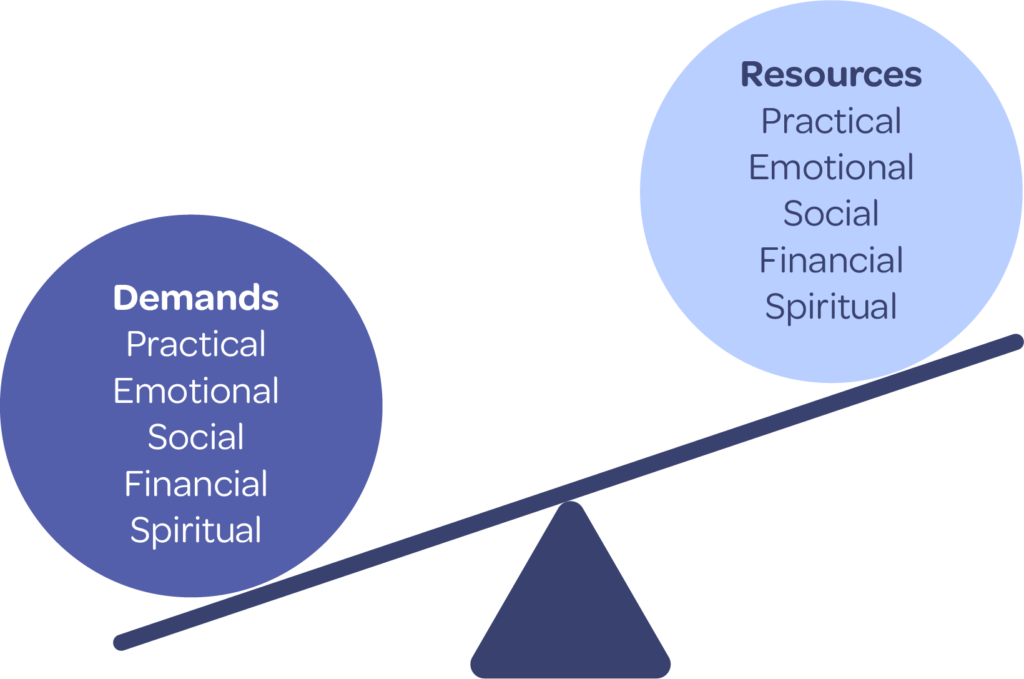Coping with Changes
Coping with Changes

Any change in our lives – large or small, ‘good’ or ‘bad’ – has the potential to add or take away either resources or demands. It can take time for us to adjust the balance again. We may need to use our existing resources to meet new demands, or find new resources to meet old demands. The period when we are adjusting can feel unsettled or even distressing. This is especially true if the change is significant, negative and beyond our control, such as a bereavement, the end of a relationship, living somewhere else, a health problem or the loss of a job or other valued role.
It is normal after a life change to experience some or all of the following thoughts, emotions or changes in our body or actions. They might be present all the time, or come and go. We should only think of them as a problem if:
- They are so intense or severe that they prevent you from functioning properly
- Instead of feeling better over time you feel ‘stuck’ or that you are feeling worse.
How your body might feel
- Changes in your normal sleep pattern – more or less
- Changes in your appetite – more or less
- Feeling keyed up or restless OR feeling exhausted and slowed down
- Headaches or other aches and pains
- Panic symptoms such as a racing heart, tightness in the chest, dizziness/lightheadedness etc.
Thoughts you might have
- “why has this happened?”
- “what am I going to do about…?”
- You might find your mind gets ‘stuck in a loop’ of trying to sort out real or possible problems
- You might find it hard to focus on or remember things
- You might find yourself being ‘judgey’ or self-critical
Feelings you might have
- Feeling more ‘up and down’ than usual OR feeling more ‘flat’ than usual
- Feeling irritable
- Feeling guilty
- Feeling overwhelmed
- Feeling sad
- Feeling angry
Things you might do
- Avoiding tasks or situations which feel too difficult or ‘too much’.
- Talking less to people, becoming less sociable
- Looking for reassurance AND/OR reassuring other people
- Setting yourself lots of tasks or deadlines to try to keep up
- Working hard to keep things ‘normal’
















